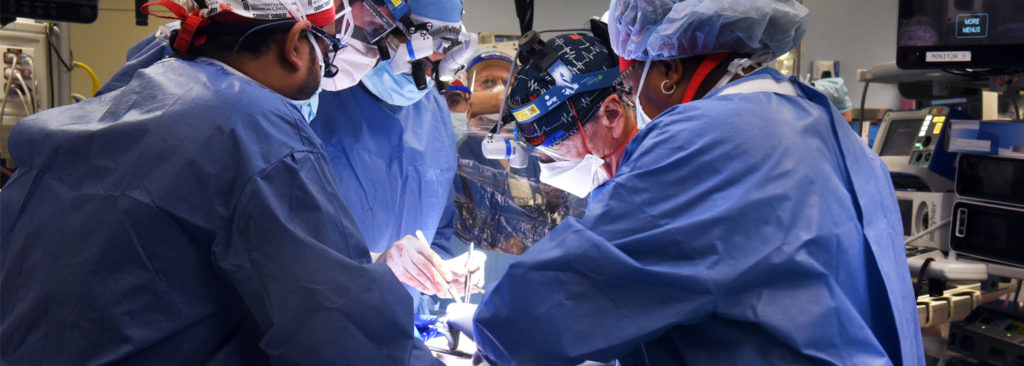
Genetically modified and marinated in cocaine: Pig’s heart still keeping Maryland Man Alive
As of this writing, David Bennett of Maryland man is still alive a month after surgeons placed a pig’s heart in his chest.
The transplant was historic – the first xenotransplation of a heart from another species into a human. It’s a milestone on a path that eventually could lead to the routine use of organs for transplants from sources other than human cadavers.
Safer Cars = Few Organs for Transplant
Already, there is a shortage of organs for transplants. That situation will get even worse as another emerging technology – autonomously driven vehicles – develops further.
As we adopt self-driving cars, there will be fewer auto accidents and fewer traffic fatalities. It is no coincidence that you register to be an organ donor when you renew your driver’s license. Cadavers from car accidents are the primary source of organs for transplants.
Although fewer car accidents is a good thing, even more people will be left waiting, for years sometimes, for a transplant, and the urgency for alternatives will increase.
Stuck in the Middle
Work is underway on technologies such as new artificial organs and a method for creating organs from the patient’s stem cells using a 3D printer, but these solutions are years away.
As with many emerging technologies, we are in a “middle period” in the development of alternatives for organ transplants. During this period, the interim solutions may not be as good as the old solutions and getting to the better solution will require tolerance of the imperfections of the interim solution.
Much has been made of the fact that Bennett, the pig heart recipient, served time in prison for stabbing a man and whether a unique opportunity for the extension of life should have gone to someone else who didn’t have a serious criminal record.
Others have questioned whether the transplant should have gone to Bennett regardless of his criminal record. He was ineligible for a human heart transplant because he had a history of failing to follow doctors’ orders.
These are fair questions and worthy of discussion, but at a deeper level the question is whether we are willing to accept medical procedures that we know are unlikely to bring about a long-term positive outcome for a particular patient, when we understand that the long-term benefit may be for other patients in the future.
Build-Measure-Learn
Medical procedures as complex as a heart transplant are iterative. Like startup business processes, they follow the “build, measure, learn” cycle captured by Eric Ries in his book “The Lean Startup.” Repeated over and over, this cycle leads to a better and better product.
We tolerate this process when it’s applied to software products – a new app for organizing your to-do list or a new version of iOS. The first version may suck, but the next will be a little better until eventually, you have a working product that people love. But will we tolerate a minimally viable product (MVP) when that product is a heart?
Even to get to the point where Bennett was able to receive the pig’s heart, the build-measure-learn cycle was at work. Doctors experimented with what modifications were necessary to make a pig’s heart work in a person. Using CRISPR gene-editing tools, they took steps to minimize the rejection of the organ by a human immune system and to ensure that the heart, which came from an animal that would otherwise have grown to be several hundred pounds larger than a person, would not outgrow its new user.
Scientists have also learned through build-measure-learn cycles that pig hearts do best when transplanted into baboons if they are first marinated – err, kept, in a solution of hormones and dissolved cocaine.
Doctors planned to do more trials with baboons before they would attempt a transplant with a human recipient, but Bennett presented an opportunity to accelerate learning about the process. He was ineligible to receive a human transplant and for medical reasons other alternatives, such as an artificial heart, would not have worked. Bennett was on the edge of death, and his medical team received a compassionate use exception from the FDA to try the pig heart transplant.
Accepting Worse Outcomes – in the Short Run
Although his doctors are dedicated to his care, Bennett’s life almost certainly will be shorter than if he had received a human heart transplant. In some recent experiments, baboons who had received pig hearts as transplants lived as long as nine months before they died of lung infections that were allegedly unrelated to the transplants. Bennett is living now with the extreme uncertainty about his remaining time. How long can he survive with a heart from a pig? Will he get out of the hospital? Will his death be painful?
But there will be learning from Bennett’s experience. That learning will go into building a better process for the next person, whose experience will lead to learning and a better process and so on and so on.
Eventually, this will lead to a process that is reliable, that doesn’t involve the extreme risk now present in cross-species transplants.
In the meantime, we are going to have to accept that risk, accept breeding animals and genetically modifying them only to kill them to save humans.
These seem like brutal choices, but it’s the only way we will get to a better solution.